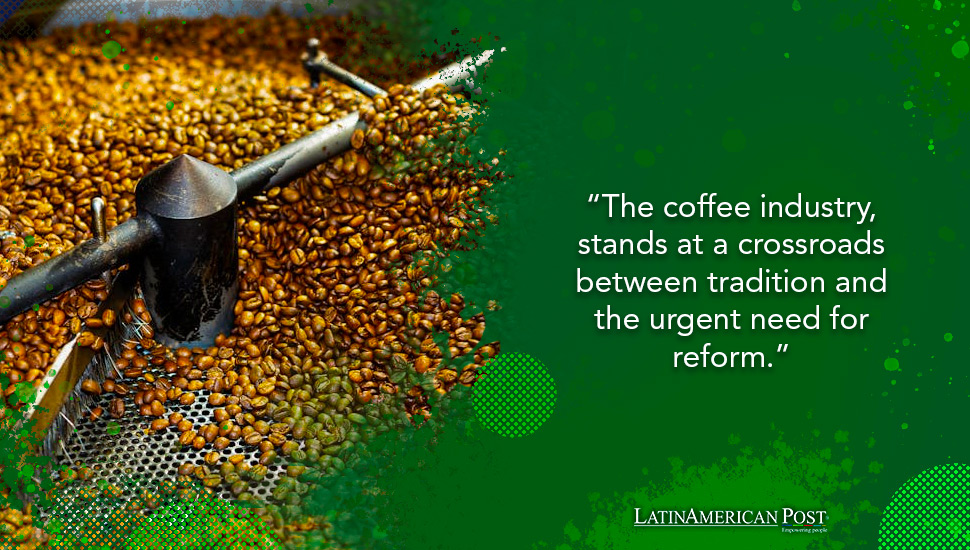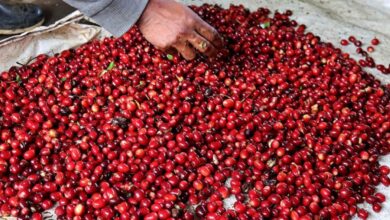Transforming the Coffee Industry: A Comprehensive Approach to Fairness and Sustainability in Latin America

The global coffee industry, marred by exploitation and unsustainable practices in Latin America, requires a radical overhaul. This piece advocates for eliminating precarious labor, child labor, and poor working conditions, spotlighting ethical pioneers and urging robust, data-driven solutions.
Navigating Tradition and Reform
The coffee industry, integral to Latin America’s identity and economy, stands at a crossroads between tradition and the urgent need for reform. While the beverage remains a cultural staple and a major export, the industry is plagued by systemic issues of exploitation, including precarious working conditions, child labor, and inadequate compensation for producers. Despite these challenges, visionaries like Luis Fernando Muñoz and ethical enterprises such as Right Side Coffee demonstrate that a path to a sustainable and fair coffee industry is a dream but a viable reality.
Historically, coffee has been pivotal in Latin America’s economic development, but not without cost. The coffee belt stretches across the continent and has been the site of significant social and environmental challenges. Countries like Brazil, Colombia, Guatemala, Honduras, and Peru have become synonymous with coffee production. Yet, they also exemplify the industry’s darker facets. For instance, despite being the world’s largest coffee producer, Brazil has faced numerous allegations of labor abuses on its plantations. Similarly, Central American nations like Guatemala and Honduras contend with the dual challenges of economic instability and environmental degradation, exacerbating the difficulties faced by coffee growers.
Luis Fernando Muñoz: A Legacy of Ethical Coffee Production
The story of Muñoz, a Colombian coffee producer and third-generation grower, underscores many Latin American families’ deep historical roots in the coffee industry. His dedication to producing and directly selling coffee in Spain while maintaining the product’s traceability highlights the potential for ethical practices within the industry. This dedication honors his family’s legacy and sets a standard for how coffee production and distribution can be conducted responsibly.
Right Side Coffee’s approach to paying “what’s fair” to producers represents another beacon of hope. By establishing direct relationships with growers and rewarding quality with premiums above market prices, the company showcases how ethical engagement can lead to mutual benefits. Their efforts in fostering long-term partnerships with producers across Latin America exemplify a commitment to sustainability and fairness that goes beyond mere transactions. These practices ensure coffee production’s economic viability and promote environmental stewardship and social welfare.
However, addressing the challenges of the coffee industry requires more than isolated efforts. The systemic issues of child labor, poor working conditions, and unfair compensation are deeply embedded in the global trade structure. Comprehensive and data-driven solutions are necessary for a sustainable and fair coffee industry. This includes:
Implementing and Enforcing Strict Labor Standards: Governments and international bodies must work together to enforce labor laws prohibiting child labor and ensure safe working conditions for all coffee producers.
Promoting Fair Trade Practices: Expanding the adoption of fair trade certifications can help guarantee that coffee producers receive a fair price for their products, thus improving their living conditions.
Investing in Sustainable Agricultural Practices: Supporting the transition to sustainable farming methods can mitigate environmental impacts and ensure the long-term viability of coffee production.
Fostering Transparency and Traceability: By increasing transparency in the coffee supply chain, consumers can make informed decisions that support ethical and sustainable practices.
Encouraging Consumer Awareness and Action: Educating consumers about the impacts of their coffee purchases can drive demand for ethically produced coffee, incentivizing the industry to adopt fairer practices.
The path to a sustainable and fair coffee industry in Latin America is fraught with challenges but possible. Through collective action, innovation, and a commitment to ethical principles, the coffee industry can transform into a model of sustainability and fairness. By supporting the pioneers leading this charge and demanding more from our coffee, we can contribute to a future where every cup is filled with the promise of dignity and respect for those who produce it. The journey is long, but the destination—a coffee industry that uplifts rather than exploits—is well worth the effort.





